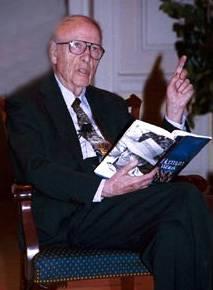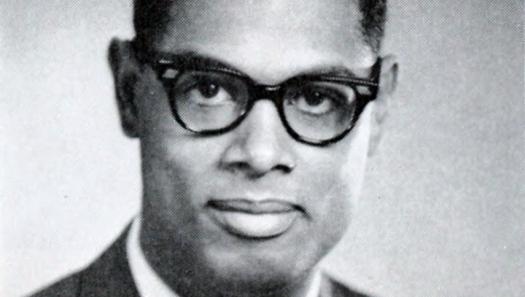Military & Veterans Life
TopVet: Herman Wouk, Author

Eighty-six-year-old Herman Wouk is one of the most prolific and insightful novelists writing today. His books have populated the best-seller lists for the past five decades.
They include war novels, historical novels, a business novel, an urban-memoir novel, and a comic novel.
Among his best-known works are three books set during the Second World War: The Winds of War, War and Remembrance, and The Caine Mutiny, which won the Pulitzer Prize in 1952.
Several of his works have been adapted to other media: The Caine Mutiny and Marjorie Morningstar to film; War and Remembrance and The Winds of War to television; and The Caine Mutiny to the stage.
Wouk was defined as much by his experiences during the Second World War as by the cultural and intellectual bent of his Orthodox Jewish family. He grew up in the Bronx, born of Russian immigrant parents who prospered in New York. His greatest literary influence, he told the Washington Post, "without question, was Mark Twain. My mother bought his complete works from a door-to-door salesman and I’d read them all by the time I was 12."
Despite the Depression, young Wouk was able to make a good living writing comedy for such radio personalities as Fred Allen. Then his life changed forever with the coming of World War II. Having had to flee Europe when Germany and Russia signed their nonaggression pact, Wouk realized that was with Hitler was inevitable and looked into joining the Navy. And his experiences as a midshipman aboard the destroyer-minesweeper USS Zane was, he says, the "defining experience" of his life.
"I was the only Jew aboard," he told the Washington Post. "I was commanding Americans from all over the country of a sort I had never met - living with them, fighting battles with them . . . betting my life on them and having them bet their lives on me." The "intensity" of his time in the service, he says, "made me as a writer." His first novel, Aurora Dawn, was bought by Simon & Schuster while he was still at sea. His third, The Caine Mutiny, became hugely successful.
It was not, however, the war book. That would be two volumes, penned after some 15 years and research that included perusing 1,100 books. "It’s safe to say," wrote Washington Post writer Ken Ringle, that "more people have learned more about World War II" from The Winds of War and War and Remembrance "than they have from any historian."
No novelist can hope for more.



